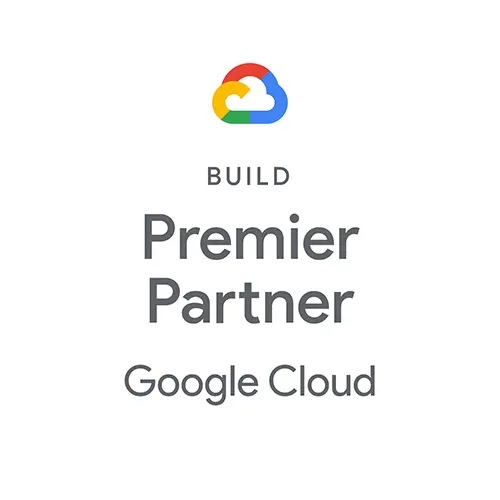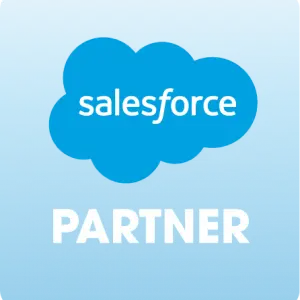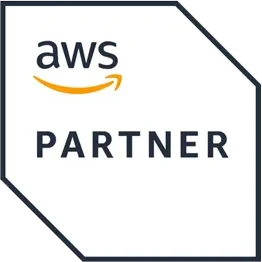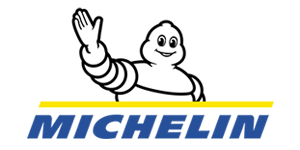
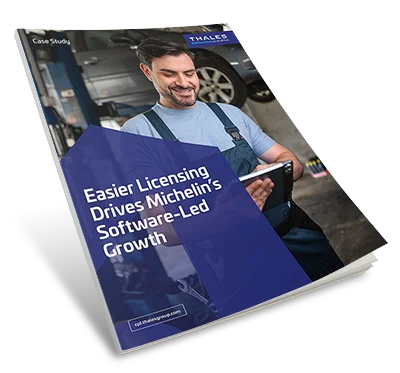
Michelin Transforms Tire Expertise into Scalable Software Revenue
Everyone knows Michelin for their tires. But this 130-year-old industrial giant is shifting into a new gear with a software-led revenue strategy. At the core is their goal to transform their deep domain expertise in tire performance into software products that can be sold and create scalable revenue.
TameTire, Michelin's high-fidelity simulation tool, was developed to test tire performance for motorsports teams and auto manufacturers. The software models how tires respond to forces like torque, heat, and friction so that car makers can simulate conditions before going to the track.
Because TameTire can be used over a wider range of tire operating conditions than mathematical models, it is highly valuable to their customers. So Michelin had a highly valuable software product + a clear target market. But Michelin soon discovered that building advanced software was only part of the journey to establishing a software revenue stream.
The Challenge: Enabling Modern Software Sales Without Compromising IP Protection
Like many manufacturers venturing into software, Michelin faced a fundamental mismatch. Their legacy systems were built for physical products, not for cloud-delivered software. Sales processes were manual. Licensing, when they had it, was static. Michelin was unable to sell their software directly to customers, and unable to react to their customers’ changing needs. The licensing process was time-consuming and clunky—the opposite of what Michelin needed.
Then came the bigger challenge: software IP protection. Michelin knew that if they were going to deploy software in end- user environments they would be at risk for hacking, cracking, and copying. As Pierre-Yves Mauriere, Product Owner for TameTire stated: "Michelin simulation technology is highly valuable. We are the clear market leader, and that's a position we intend to retain."
The stakes were clear. To sell software successfully, Michelin needed an entirely new infrastructure: one with streamlined internal software licensing workflows that would result in seamless—yet secure—customer deployment.
The Solution: Thales Sentinel Delivers Secure and Modern Software Licensing
The requirements were clear but challenging: Michelin needed to deliver software flexibly—across regions, teams, and with or without internet connectivity—all while maintaining bulletproof security.
Enter Thales Sentinel.
Together, Michelin and Thales reimagined the entire licensing experience:
- Securing software IP from unauthorized and malicious access
- Streamlining license deployment for internal and external teams
- Allowing Michelin to be agile with its software so they could respond to customer requests quickly
With Sentinel, Thales' software monetization platform, Michelin found the key to protect their revenue and accelerate growth. The transformation unlocked a faster go-to-market process while giving the licensing team complete control over who could access what, when, and how.
The Results: Scalable Digital Software Sales and Fulfillment
The transformation changed everything about how Michelin's software reached its customers. What used to be a support-heavy, manual deployment process became a streamlined, digital experience—one that builds customer trust and scales globally. As a result Michelin is “spending a lot less time managing licensing matters now," says Pierre-Yves Mauriere and is focusing on building the next generation of innovative simulation software.
What's Next: Expanding Software Offerings To Reach New Markets and Customers
Simulation was only the beginning.
With a secure licensing foundation in place, Michelin is looking ahead to an even more digital future. From predictive maintenance to connected mobility platforms, the company is exploring new software verticals and new ways to deliver value beyond physical tires.
The company that built the gold standard in tires is now setting a new standard, transforming how it securely monetizes innovation.
